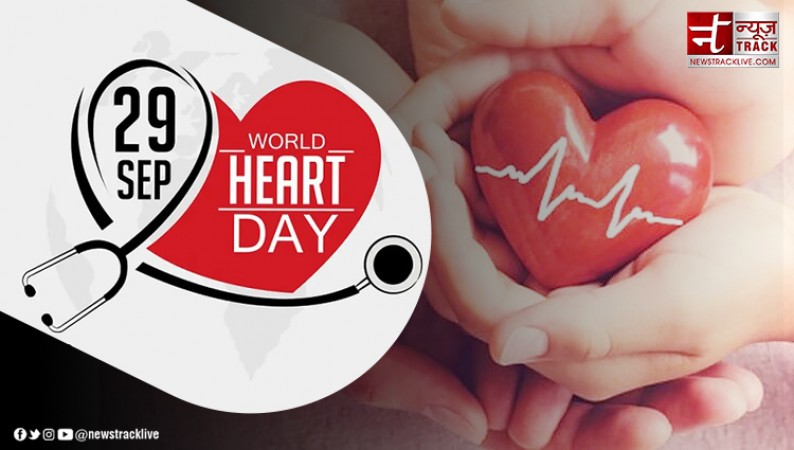
World Heart Day 2023: Empowering Individuals Through Heart Health Awareness
Every year on September 29, World Heart Day is observed worldwide to raise awareness about heart disease and promote preventive measures that can help reduce the burden of cardiovascular diseases. This global initiative seeks to educate people about the importance of heart health and inspire them to take proactive steps to safeguard their cardiovascular well-being. The theme for World Heart Day 2023 is "Use Heart, Know Heart," which emphasizes the use of the heart emoji as a symbol to promote the significance of the day and encourages individuals to increase their understanding of heart health.
Use Heart: The Power of Symbols in Health Awareness
The "Use Heart" aspect of this year's World Heart Day theme brings attention to the heart emoji and its role in health awareness campaigns. Emojis have become an integral part of modern communication, transcending language barriers and effectively conveying emotions, ideas, and messages. The heart emoji, in particular, holds a universal and powerful meaning - love, care, and concern.
In the context of World Heart Day, the heart emoji serves as a symbol of commitment to heart health. By using this symbol, we can remind people of the importance of their cardiovascular well-being and encourage them to take action. Social media platforms, messaging apps, and various digital platforms have made it easier than ever to spread awareness using emojis. A simple heart emoji in a post, tweet, or message can spark conversations about heart health and inspire positive changes in lifestyle and habits.
The World Heart Federation acknowledges the value of emojis in today's fast-paced digital world. Emojis capture attention, evoke emotions, and can be easily shared across diverse communities. Leveraging the heart emoji as a tool for health promotion on World Heart Day is a creative and inclusive approach to reach a wide audience, regardless of their linguistic or cultural backgrounds.
Know Heart: Empowering Yourself Through Knowledge
"Know Heart" is the second part of the World Heart Day 2023 theme, and it encourages individuals to take control of their heart health by gaining knowledge and awareness. Heart disease is a leading cause of death worldwide, and many risk factors are modifiable through lifestyle choices and early intervention. By empowering yourself with knowledge about heart health, you can make informed decisions to protect your heart and overall well-being.
Here are some essential aspects of heart health that everyone should know:
1. Understand Your Risk Factors
Knowledge is power when it comes to managing heart health. Familiarize yourself with common risk factors such as high blood pressure, high cholesterol, diabetes, obesity, smoking, and a sedentary lifestyle. Regular health check-ups and screenings can help identify these risk factors early, allowing for timely intervention.
2. Healthy Diet Choices
A heart-healthy diet can significantly reduce the risk of heart disease. Focus on a diet rich in fruits, vegetables, whole grains, lean proteins, and healthy fats. Limit the intake of processed foods, sugary drinks, and excessive salt. Pay attention to portion sizes and practice mindful eating.
3. Regular Physical Activity
Physical activity is crucial for maintaining cardiovascular health. Aim for at least 150 minutes of moderate-intensity exercise or 75 minutes of vigorous-intensity exercise each week. Incorporate activities like walking, cycling, swimming, or dancing into your routine to keep your heart in good shape.
4. Smoking and Alcohol
If you smoke, seek support to quit. Smoking is a major risk factor for heart disease. Additionally, limit alcohol consumption as excessive drinking can harm your heart. Moderate or responsible alcohol consumption is recommended if you choose to drink.
5. Stress Management
Chronic stress can take a toll on your heart. Find healthy ways to manage stress, such as through meditation, deep breathing exercises, yoga, or engaging in hobbies you enjoy. A well-managed stress level contributes to better heart health.
6. Know the Warning Signs
Understanding the warning signs of a heart attack or stroke is vital. These can include chest pain or discomfort, shortness of breath, pain or discomfort in the arms, back, neck, jaw, or stomach, and sudden weakness or numbness in the face or limbs. If you experience these symptoms, seek immediate medical attention.
7. Regular Check-ups
Regular health check-ups with your healthcare provider are essential to monitor your heart health. These visits can help detect and manage conditions like high blood pressure, high cholesterol, and diabetes, which are often silent but dangerous risk factors.
8. Medication Management
If you have been prescribed medication for a heart-related condition, take it as directed by your healthcare provider. Medications can play a crucial role in managing and controlling heart disease.
9. Support and Community
Don't hesitate to seek support and connect with others who are on a similar journey to better heart health. Support groups and community resources can provide encouragement and valuable insights.
10. Family History
Be aware of your family's medical history, as genetics can influence your risk of heart disease. Share this information with your healthcare provider to develop a personalized prevention plan.
Empowering Hearts Worldwide
World Heart Day 2023's theme, "Use Heart, Know Heart," is a powerful call to action for individuals and communities around the world. By using the heart emoji, we can collectively raise awareness about the importance of heart health and promote a culture of care and concern. Through knowledge and awareness, we empower ourselves to take control of our heart health and reduce the burden of heart disease on a global scale.
Remember that small changes in lifestyle and daily choices can make a significant difference in preventing heart disease. On this World Heart Day, let's use our hearts to inspire positive change, and let's know our hearts to lead healthier, happier lives. Together, we can make a difference in the fight against heart disease and contribute to a world with healthier hearts and longer lives for all.